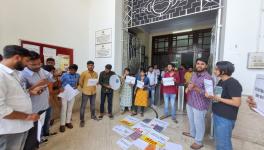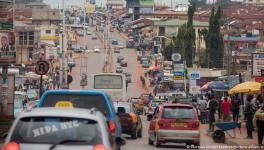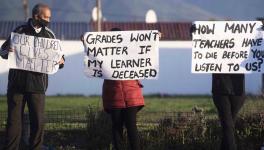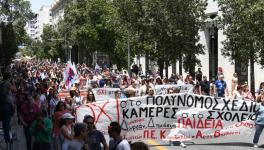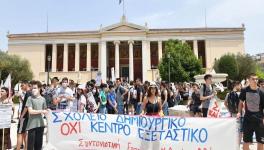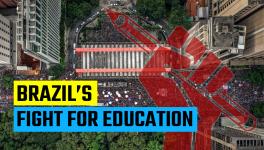University of Zambia Employees on Strike Over Unpaid Salaries
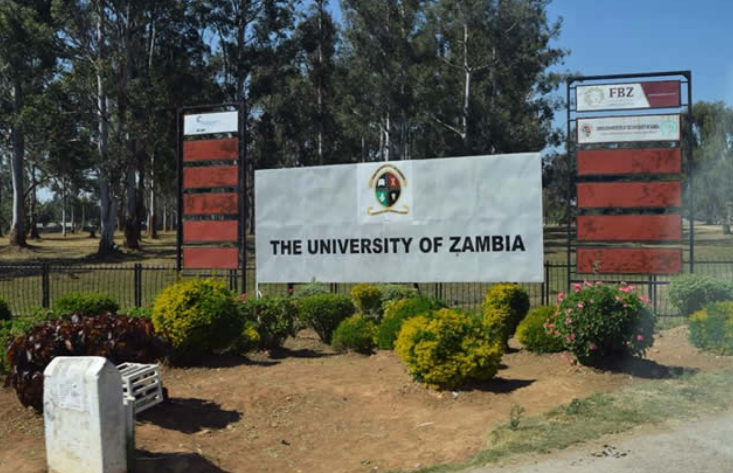
The Edgar Lungu-led government has been under-funding the university for almost a decade. (Photo: Lusakatimes)
All unionized teaching and non-teaching staff employed at the University of Zambia are on a strike since March 11, protesting against the delays in payment of salaries for the month of February.
The strike was jointly decided by the three unions representing the staff – the University of Zambia Lecturers and Researchers’ Union (UNZALARU) which represents the academic staff, the University of Zambia Professionals Staff Union (UNZAPSU) which represents the non-teaching staff, and the University of Zambia Allied Workers Union (UNZAAWU), representing the drivers, cleaners, security guards, etc., employed by the university.
The financial woes of this premier education institute are not limited to delay in one month’s salary. The government, which is legally obliged to finance the public university, has been under-funding it for almost a decade.
Zambian journalist Sheikh Chifuwe told Peoples Dispatch that that the total amount owed by the government to the university staff since 2010, in form of unpaid benefits and allowances promised in their contracts, amounts to K600 million (USD 50 million).
In September 2018, after years of negotiations failed to resolve the matter, UNZALARU decided on a ‘go slow’ strike action, reducing the pace of their work. Apart from holding back the dues, the “management has also deliberately prevented eligible staff from getting promoted for fear of an increased wage bill. It has gone as far as tampering with the tool that was approved by the University Council so that they prevent staff from getting promoted. Management is even guilty of making changes the moment it is noticed that a certain number of people qualify for promotion,” said the UNZALARU publicity secretary, Moffat Moyo, while announcing the strike.
Government threatens the unions
In response to this strike, insisting that the “government is very unhappy with the behaviour of .. [the] lecturers”, Nkandu Luo, higher education minister in the Patriotic Front-led government, said, “We need to find a way to discipline our workers.”
Threatening the teachers, Luo said that she would have sacked the striking teachers and withdrawn the recognition of UNZALARU, if she had the power to do so.
Students, who have also been suffering the consequences of the government’s financial neglect of the university, went on a protest against the delay in release of meal and accommodation allowances, without which higher education remains virtually inaccessible to most poor students.
Amid the protest, police used force, in which several students were injured and one female student was suffocated to death in her hostel room into which a teargas canister was fired. The government’s response to the student movement further exacerbated the issue of lack of affordable access to education. Soon after, the Higher Education Minister announced the government’s decision to withdraw the meal allowances, which took effect from this February.
A motion in the parliament by an opposition member seeking restoration of the meal allowances was defeated by the ruling party who are the majority in parliament. The motion noted that withdrawal of the allowance might exclude a majority of the students from the education system as they come from poor families.
Further, confirming the fears of the government’s “plans to circumvent the policy on the payment” of the dues, the Education Minister, earlier this week, also announced that the government would begin cancelling the accumulated K600 million (USD 50 million) debt obligations to the university staff.
Budget allocation insufficient to pay salaries of civil servants
A meager K69 million (USD 5.8 million) was allocated for the university in this year’s budget, out of which only K23 (USD 1.92 million) has been released in the first quarter. This amount, far from financing the unpaid dues, falls short even of what is required to pay for the salaries and other basic maintenance costs of running the university, according to UNZALARU president, Dr. Lambi.
In his meeting with the university management on March 11, Lambi explained, “If we allow them to pay later, we may have unpaid months like some other government institutions.”
These other government institutions include government-owned hospitals and banks, whose employees are also yet to receive their February salaries. Earlier this month, the Zambia Union of Nurses Organization (ZUNO), the Civil Servants and Allied Workers Union (CSAWUZ) and the Bankers Union of Zambia (BUZ) expressed their concerns over unpaid salaries of their members.
“The government has been paying civil servants and other public service workers their February salaries in piecemeal the past two weeks, starting with the soldiers, the intelligence service, before moving to other sectors/professions they consider less of a risk to the security of the country. Universities, like most public service institutions, are at the bottom of the ladder of priority for funding,” Chifuwe told Peoples Dispatch.
Explaining the roots of the current financial crisis which has rendered the government incapable of paying salaries to the workers it employs, Chifuwe pointed to the increasing indebtedness of the country to its international lenders. While official figures admit to a USD 10 billion debt stock as of the end of last year, “this does not reflect the [real] debt position, especially the project debts contracted from China. It is estimated to be a lot higher, while the debt.. [owed to] domestic lenders is also swelling,” he said.
The Treasury Bills issued by the government have lost value in the international market, further reducing the government’s ability to raise finances. Unsure whether the government will be able to impose further austerity measures on the country’s population against their will, the IMF is also not keen on lending money to the Zambian government.
Under such circumstances, Chifuwe stressed, “the government has to find other sources, for example, introduction of various taxes to raise revenue in order to provide social services.”
Get the latest reports & analysis with people's perspective on Protests, movements & deep analytical videos, discussions of the current affairs in your Telegram app. Subscribe to NewsClick's Telegram channel & get Real-Time updates on stories, as they get published on our website.









